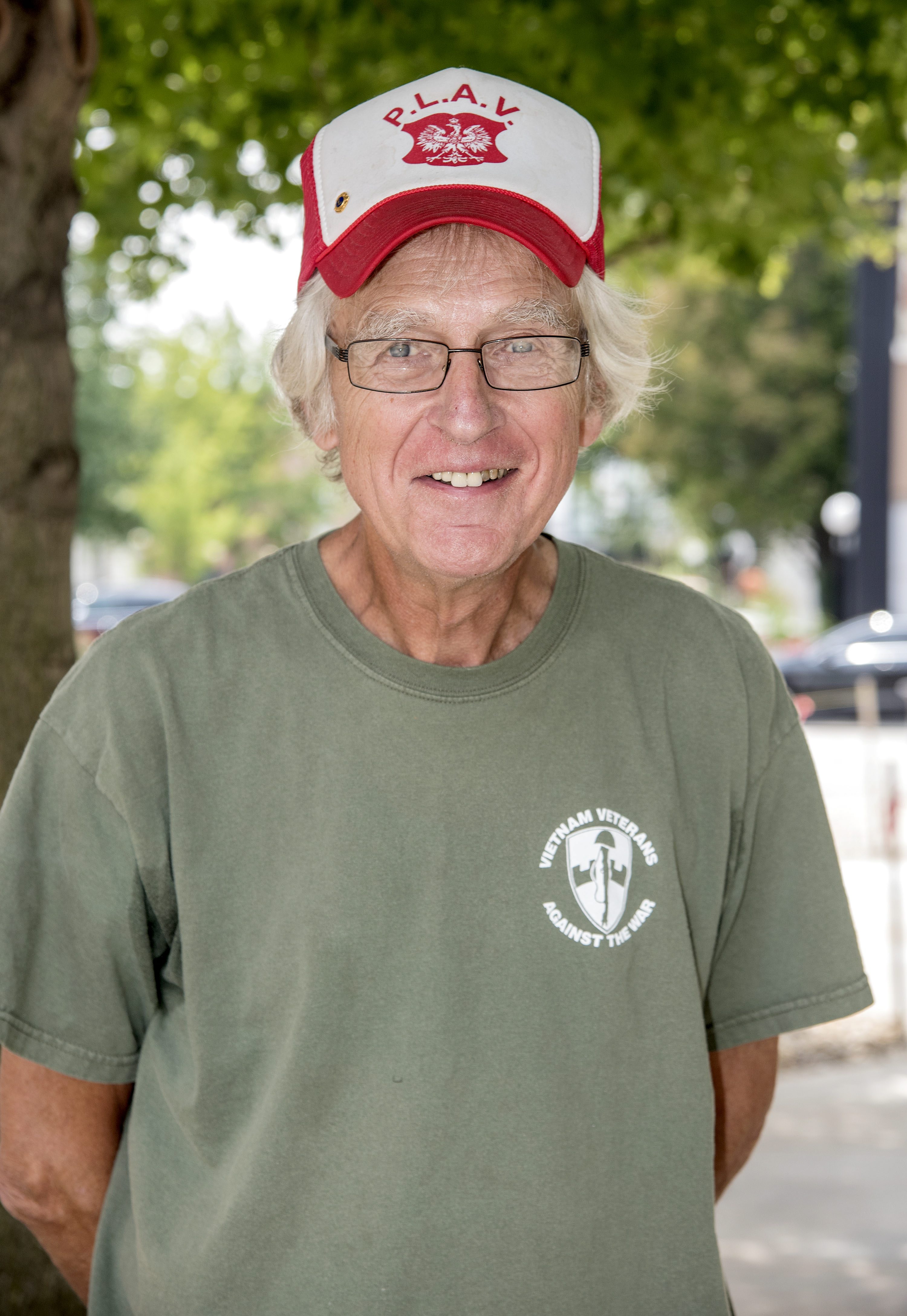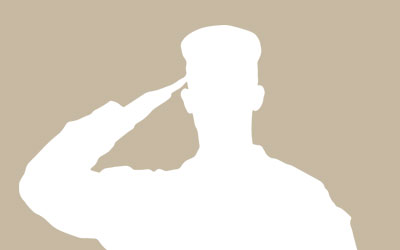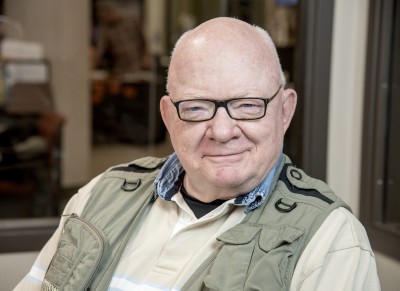Paul Wisovaty
By Paul Wood

Photo By Rick Danzl/The News-Gazette
TUSCOLA — Paul Wisovaty entered the Vietnam War as a John Wayne fan, but after six months “in country,” began to notice that the South Vietnamese were not cheering as his armored personnel carrier passed by.
As a history major, he believes the words of President Eisenhower, who said that communist leader Ho Chi Minh had united his country against the Japanese. That made him a national hero, both North and South.
“It was generally conceded that had an election been held, Ho Chi Minh would have been elected premier,” wrote Eisenhower, who’d been president at the time the Vietnamese ended French colonialism and an election was planned.
Wisovaty lived in Taylorville, “hanging out in pool halls,” when the Army drafted him in 1966. A stint in the motor pool convinced him that he needed an option for the end of his service.
“I’d changed enough tires,” Wisovaty said.
His commander warned him that Vietnam was his likely destination.
There, Private Wisovaty served as a radio operator in a convoy of tanks and armored personnel carriers. He arrived in late 1967, only months before the North Vietnamese began a sprawling counter-offensive on the Tet holiday, the lunar New Year.
His six months in Vietnam would be at the height of the war.
“I’m just glad I wasn’t in Hue,” he said, of the city the U.S. and its allies held. Despite being close to the demilitarized zone, the area was poorly fortified.
Hue was virtually destroyed in the back and forth fighting. More than 5,000 civilians were killed, more than the death toll for the South Vietnam and U.S. regulars.
Though it was declared a victory for allied forces, it may have contributed to a continuing disenchantment with the South Vietnamese government.
Wisovaty noticed that Americans experienced varied reactions from the civilians (some of whom may be have been Viet Cong).
“If I was in a bar and gave a big tip, they’d say America No. 1, VC No. 10,” he said.
But on the streets, the convoy received a very different reaction.
“They weren’t throwing flowers at us,” he said, comparing it to the welcome of Allied liberators in Paris in World War II.
“In Paris, the women jumped in the Jeeps and kissed the GIs,” he said. “That wasn’t happening here. I became convinced that we shouldn’t have been there.”
After his service, Wisovaty went to the University of Illinois, where he studied history and political science with help from the GI Bill.
Wisovaty found the area conservative, but he joined in anti-war protests. Later, he joined Vietnam Veterans Against the War.
“I had a disrespect for authority,” he said, but he ended up with a long career as a probation office here and in Douglas County, motivated by pressure from his young wife to go out and find a job.
Wisovaty enjoyed the career and did it for decades.
In retirement, he talks about the Vietnam War in history classes, and students ask a lot of questions, Wisovaty said.
For a while he commanded a veterans organization.
Wisovaty had heard about the Polish Legion of American Veterans and decided he wanted to join a post. The national commander convinced him to start his own affiliate.
The group used to award two $300 scholarships to a veteran’s family member graduating from Tuscola High School.
The only post in the state south of Chicago, it was dissolved when the membership dropped to three.
Do you know a veteran who could share a story about military service? Contact Paul Wood at pwood@news-gazette.com.
Read more stories from local veterans:
 Kraig Kennedy
CHAMPAIGN — It’s a soldier’s time to get to know his son. Kraig Kennedy just returned from Kuwait. He was deployed 10 mo …
Kraig Kennedy
CHAMPAIGN — It’s a soldier’s time to get to know his son. Kraig Kennedy just returned from Kuwait. He was deployed 10 mo …
 Dale Smutz
DANVILLE — Join the Navy and see the world. That was no exaggeration for Dale Smutz, 90. Smutz grew up in Danville and r …
Dale Smutz
DANVILLE — Join the Navy and see the world. That was no exaggeration for Dale Smutz, 90. Smutz grew up in Danville and r …
 Jim Morris
CHAMPAIGN — Sgt. Jim Morris endured “gruesome” scenes investigating war crimes in Kosovo. A rock thrown at his vehicle t …
Jim Morris
CHAMPAIGN — Sgt. Jim Morris endured “gruesome” scenes investigating war crimes in Kosovo. A rock thrown at his vehicle t …